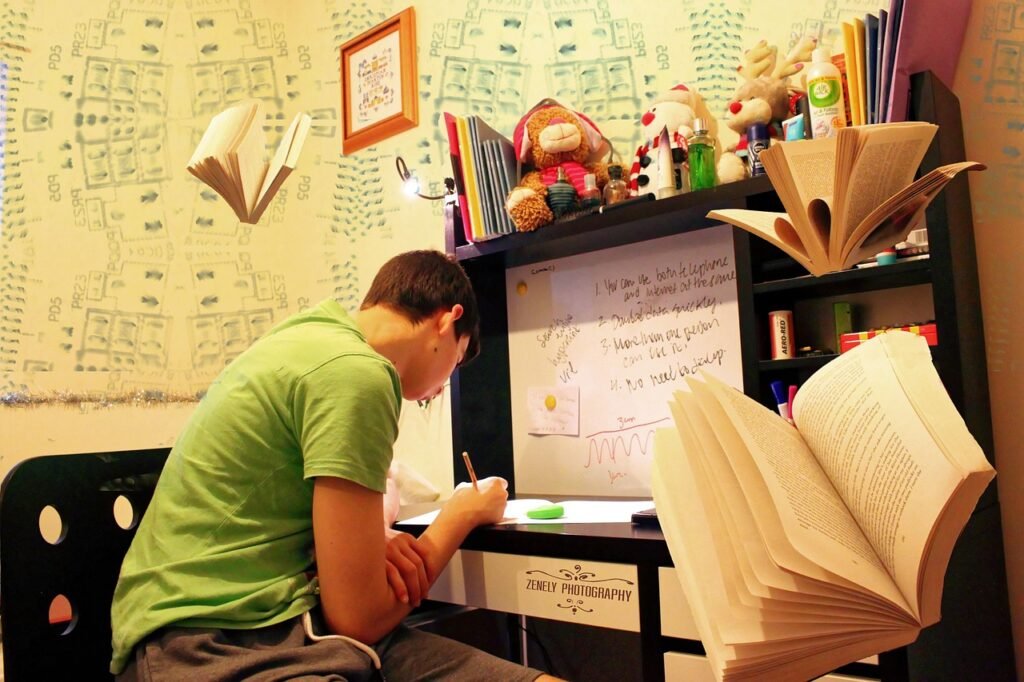Every graduate program has its defining moment, and for master’s students, the project defense sits at the top of that list. It is the point where years of study, research, and effort are tested in front of a panel that expects clarity, depth, and confidence. While outright failure is rare, when it happens it can be crushing. A failed defense often leads to delayed graduation, shaken confidence, and in some cases, difficult academic consequences that feel hard to recover from.
The good news is that most of the reasons students stumble are avoidable. Lack of preparation, weak presentation skills, or not anticipating committee questions are problems with clear solutions. In this article, we break down 20 common pitfalls that cause students to fail their master’s project defense and show you practical ways to fix them. Think of it as a roadmap to prepare, present, and pass with confidence.
Why Failure Despite Preparation Happens
Preparation is supposed to give students confidence, but even with weeks of practice, some still fail their master’s project defense. One major reason is not fully understanding the expectations of the program. Every department has its own standards for structure, delivery, and evaluation, and if you are not clear on those, you risk presenting well but missing the mark.
Another factor is pressure. The defense room can feel intimidating, and nerves have a way of making even strong students forget key points or rush through explanations. Confidence built in private rehearsals can suddenly shrink under committee eyes.
Finally, some students lean too heavily on advisor approval. If an advisor says the work looks fine, students may assume they are completely ready, only to face tough questions that were never discussed. The lesson is simple: preparation must include clarity on rules, steady control, and self-driven readiness.
20 Reasons Students Fail Master’s Project Defense (with Fixes)
A. Presentation & Preparation
1. No-show / Walkover
One of the simplest ways to fail master’s project defense is by not showing up prepared. Missing the right time or venue is a sign of carelessness.
Avoid this by double-checking schedules, confirming the location, and practicing. Treat it like a job interview you cannot afford to miss.
2. Tech failures / No backup plan
Broken slides or a dead laptop can ruin an otherwise strong defense.
Fix this by testing equipment early, carrying printed handouts, and keeping a spare device ready.
3. Bombed presentation due to anxiety
Many students fail master’s project defense not because their research is weak, but because anxiety takes over. Forgetting lines, rushing slides, or freezing during questions can undo months of work. You can fix this by running mock defenses with friends, practicing steady breathing, and pacing your delivery. The more you simulate real conditions, the calmer you will feel.
4. Unprofessional appearance
First impressions matter. Walking in dressed casually or looking uneasy makes the panel doubt your seriousness. Wear neat, formal clothing and keep a confident posture.
5. Slides or visuals too cluttered or unclear
One easy way to fail master’s project defense is by overwhelming the panel with slides packed with text, confusing charts, or distracting colors. Instead of helping, cluttered visuals make your arguments harder to follow and weaken your credibility. Fix this by keeping designs clean, using large readable fonts, and focusing each slide on one idea. Test readability from a distance and ask a peer to review. Clear visuals make your research easier to understand and more persuasive.
READ ALSO: How To Complete Your Master’s Thesis FAST: A Step-by-Step 30-Day Plan with Mindset, Tools & Support
B. Content & Knowledge
6. Doesn’t know the material
A surprising number of students fail master’s project defense not because their research lacks merit, but because they can’t clearly explain it. In a UK study of over 26,000 PhD candidates, more than 96 percent passed their viva, suggesting that well-prepared students who truly know their work seldom fail. Only about 4 percent failed outright (DiscoverPhDs).
To avoid this, don’t just memorize your slides; make sure you deeply understand every detail of your project. Be ready to explain your methods, defend your decisions, and answer follow-up questions confidently. A solid grasp of your research is the best way to avoid failure.

7. Unable to discuss thesis
Some students can present slides but struggle once questions begin. A study in Assessment & Evaluation in Higher Education noted that oral exams test not only knowledge but interactive depth, and weak discussion skills often expose gaps. To avoid this, anticipate follow-up questions, practice with peers, and rehearse explaining your work in simple, direct language.
8. Empty Q&A handling / “I don’t know” silence
Silence after a question can make examiners think you do not know your own research. To avoid this, use constructive clarifications. If unsure, explain what you do know, outline how you would approach the problem, and keep the discussion moving.
9. Advisor hasn’t reviewed thoroughly
On GradSchool forums on Reddit, many students shared that failing often stems from advisors giving a “green light” too quickly. You can easily avoid this by sending drafts early, requesting detailed comments, and confirming readiness. Engaging your advisor ensures fewer surprises during the defense.
10. Not following structure norms
A disorganized flow can make even strong research look weak. Panels expect a clear path from introduction to methods, results, and conclusion. When students ignore this order, arguments sound scattered and examiners lose track. To avoid this, stick to the standard structure. Practicing with this sequence not only makes your project easier to follow but also shows you understand how academic work is presented.
11. Plagiarism or unacceptable content
Nothing damages credibility faster than copied work. Universities use plagiarism checkers, and once flagged, the outcome can be severe, including failure. Some students fail master’s project defense because they rely on borrowed text or overlook proper citations.
Carefully cite every source and run your work through plagiarism detection tools before submission. Originality is non-negotiable, and it is the foundation of academic integrity.
READ ALSO: 15 Common Academic Project Writing Mistakes Students Make (And How to Avoid Each One Like a Prof.)
C. Strategy & Advisor Relations
12. Advisor allowed defense prematurely (no “green light”)
Some students fail master’s project defense because they push ahead before their work is ready. If an advisor gives only a quick review or misses key flaws, the committee will expose them.
Wait for full approval from your advisor and confirm that you are truly prepared before scheduling.
13. Ignoring program or committee expectations
Every program has rules on format, timing, and scope. Ignoring them creates friction with the committee. Fix this by studying your handbook, attending peer defenses, and asking past students what is expected.
14. Receiving but disregarding revision feedback
On GradCafe, students shared how ignoring revisions led to tougher criticism in the final defense.
Clarify every comment, apply changes, and show evidence of revisions. Taking feedback seriously earns trust and strengthens your project.
15. Unexpected committee politics or strong personalities
Sometimes a master’s defense doesn’t go as planned, not because the research is weak, but because of committee dynamics. A strong personality may push harder, or hidden politics may influence questioning. Students can fail master’s project defense if they walk in unprepared for this. But you can avoid this by sharing drafts early, identifying committee-specific concerns, and preparing targeted responses. This shows respect for each member’s perspective and reduces surprises.
16. Poor relationship with advisor or committee
A strained relationship with your advisor or committee often means less support during the defense. If communication has been poor, you may face sharper criticism. Fix this by scheduling consistent check-ins, listening actively, and aligning your goals with theirs. Strong communication builds trust, and trust makes the defense less about catching mistakes and more about discussing ideas.

D. Emotional, Mental, and Aftermath
17. Severe nerves or mental breakdown
Intense anxiety can derail a defense even when students understand their material. Studies show nearly 35 percent of graduate students report high stress or anxiety around academic tasks, and anxiety can disrupt focus and recall. (PMC)
To avoid this, practice under pressure, simulate the defense environment with friends or mentors, and pair that with self-care: good sleep, regular breaks, and calming routines.
18. Emotional burnout or despair after failure
Failing a master’s project defense can hit hard emotionally, leaving students feeling helpless and losing motivation. To avoid this, don’t go it alone. Reach out for counseling, lean on peer support groups, and remind yourself: failure is not final; it’s a step in learning.
19. Delayed degree and career impact
When students fail master’s project defense, the setback often delays graduation and disrupts career plans. Employers waiting on a degree confirmation may put opportunities on hold, and future academic plans like PhD applications can be pushed back. Avoid this by creating a revision timeline with clear deadlines and exploring backup career options while you rework your thesis. Planning ahead keeps the delay from becoming a permanent roadblock.
20. Damaged self-confidence & academic identity
Failure can shake a student’s confidence and leave them questioning their abilities. Academic identity takes a hit when years of effort seem wasted.
The fix is to reframe failure as growth. Many successful scholars faced setbacks before reaching their goals. Use the experience to identify weak points, set realistic next steps, and rebuild momentum.
READ ALSO: How To Write A Winning Master’s Research Proposal: Step-by-Step Guide (+ Checklist)
Additional Insights To Not Fail Master’s Project Defense.
1. Mock defense practices
A smart way to avoid failing master’s project defense is to practice under real conditions. Gather peers or mentors, simulate the defense setting, and record yourself. Reviewing the video helps you spot things you might miss, like speaking too fast or skipping details.

2. Stress-management routines
Anxiety ruins focus. Build habits like steady breathing, consistent sleep, and using visual reminders to pace your talk. Staying calm shows confidence.
3. Backup defense formats
Technical or scheduling issues happen. Know if your program allows virtual, hybrid, or recorded options. Having this backup keeps your progress on track.
4. Cultural or language nuances
Non-native speakers sometimes fail master’s project defense not because their research is weak but because their message is unclear. Strong accents, fast pacing, or translation gaps can confuse the panel. Fix this by slowing down, practicing pronunciation, and preparing translations of complex terms. Clarity matters more than fluency, and small adjustments can make a big difference.
5. Post-defense documentation
Passing the oral defense is not the end. Most programs require written reports, tracked revisions, and resubmissions before final approval. Missing these steps can delay graduation. Keep a checklist, follow thesis guidelines closely, and confirm deadlines. Solid documentation protects your progress and ensures your work is fully recognized.
FAQs
Conclusion
Failing a master’s project defense is rare, but when it happens, the cost is high. It can delay your degree, affect career plans, and shake your confidence. The good news is that almost every cause of failure is preventable with the right approach. Proactive preparation, honest advisor feedback, and strong mental readiness make the difference between stumbling and passing. Think of your defense as the final step in proving your growth, not just a test to survive.
Which challenge surprised you most while preparing for your defense? Share your story and insights.



